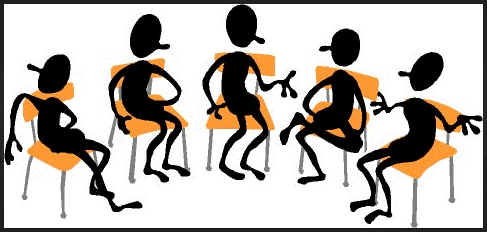
When it comes to discussing end of life issues, very rarely are all members of families on the same page. Often times, adult children don’t want to think of their parents aging, their parents may not be thrilled with the thought either, and both groups may wish for the comfortable status quo to be maintained. However – if there is one thing that humans have learned – it’s that everything changes. Death and dying are as much a part of the life cycle as birth and living. Identifying how an individual wants to spend their final years and communicating that message to family and friends is an important task.
When elderly parents experience a health crisis, adult children sometimes revert to their worst twelve year old selves. There is a certain amount of panic about knowing that your parent is experiencing age-related conditions. That reality cements the knowledge that they may not have much longer with them in their life. This realization tends to bring up long-buried emotions, resentments, fears, and conflicts within families. Those conflicts can be between siblings, children and parents, and even spouse to spouse. Unresolved conflicts can blossom anew during a health crisis – complicating any attempts to understand how the older adult wants (or would want) to proceed.
An Eldercare Mediator can be brought in as an objective third-party to help resolve some of those conflicts and move the discussion forward. Eldercare Mediators should have training or experience in both mediation and gerontology to be able to properly assist families dealing with this type of conflict. So, how does an Eldercare Mediator help a family successfully navigate these issues? One of the best ways is to educate families on the importance of having conversations about end of life wishes before there is ever an issue.
Starting the Conversation
The general rule of thumb about aging is that you should communicate your wishes early and often to your family and those who will be involved. Eldercare Mediators are also very effective at facilitating family conversations, before a crisis hits. When a situation is hypothetical – it is far easier to set aside emotions and talk rationally. The more frequently families have these discussions – the easier they become. Once decisions have been made and put into writing – families have a tool to use if/when a crisis hits. That tool can be adjusted as life situations change, and will mitigate the stress and trauma of the crisis.
Who Should Be Involved?
One of the first steps to setting up a successful family facilitation is to identify all of the parties who will be involved. Children? Friends? Caregivers? The older adult(s) in question need to give careful consideration to who they want weighing in. The mediator should meet with the older adult(s) first to establish communication and rapport. The discussion should focus on what is important to the adult(s), how they have lived their lives and how they picture living their remaining days. The conversation should then move into a discussion of who they want involved, and how they want them involved. Gentle probing into relationship issues between them and children, and between siblings should be used to help understand family dynamics. If a family member is going to be kept out of the discussions – it is important to understand and be able to communicate why to that person. Based on these discussions – the mediator needs to connect with each person involved and have similar discussions with them identifying their concerns, conflicts and comfort levels. A group meeting is then set up with all parties involved attending.
Group Meeting
This can be extremely difficult when there are geographical distances separating family members. Mediators should be ready to offer conference calling, Skype or other communication methods. Detailed notes need to be taken and distributed to participants after the meeting. The mediator’s main role is to introduce the topics that need to be covered and to promote honest, open discussion of each topic that result in a decision about how that particular topic is to be handled. Each meeting will be different based on the needs and interests of the families with whom the mediator is working. The main goal is to identify who will be involved, how they will be involved, and if they are able and willing to provide the support needed to fulfill the wishes of the older adult. Some of the more common topics are:
Legal Issues
Financial Issues
Medical Issues
Living Arrangements
Wrapping Up
This is just a small sampling of the conversations that need to be held – and they certainly cannot happen all at once. The mediator will help identify which are most pressing, which are easiest to solve, which will take more concerted time and adjust each session to address a few smaller issues and one bigger issue. Getting agreement on a smaller issue will help pave the way for agreement on the larger ones. Several smaller sessions with concrete plans established will have a greater chance of long term success than one marathon session that tries to address everything. Finally, all the participants will be reminded that these discussions are blueprints that may need to be changed as the older adults’ needs change. Using the communication methods established in the group meetings – families will be on firm ground to adjust accordingly.
Visit www.ktbeckenterprisesllc.com for more information, including training courses and coaching sessions to help plan for end of life issues.
Written by Kathleen Kauth, Mediation and Business Consulting